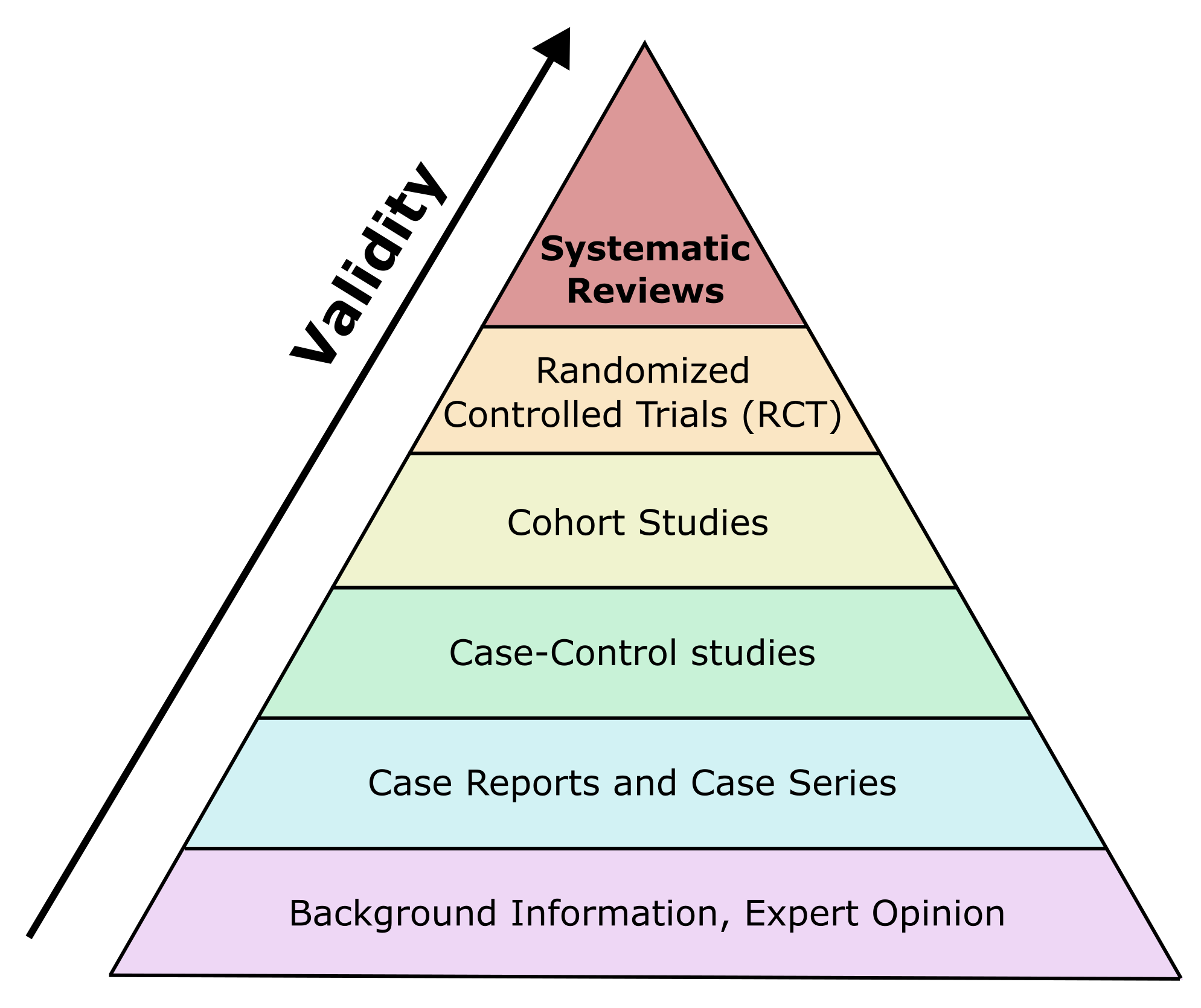Systematic reviews follow a rigorous methodology. With this, they have several strengths:
- Systematic reviews can help to deal with the evidence overload by summarizing large numbers of studies.
- Systematic reviews can identify inconsistencies in the literatures and resolve uncertainties.
- Systematic reviews can mitigate certain biases when answering specific questions.
- Because systematic reviews employ transparent and reproducible methodology, they can readily be updated as new data becomes available.
- Systematic reviews can inform future research directions and also improve future research.
- Meta-analyses can help smaller studies to reach statistical significance and also to triangulate heterogeneity within a certain field.
Based on these strengths, systematic reviews are at the top of the so-called evidence pyramid, meaning they form the highest level of evidence.

In addition, systematic reviews of animal studies are a valuable tool to inform the 3R principles (replacement, reduction, refinement) which are a framework for humane animal research:
- By systematically reviewing the literature, unnecessary duplication of animal experiments can be reduced.
- Systematic reviews can be catalysts to improve design, quality, and reporting of animal studies.
- Producing additional scientific insights without using additional animals.
- Fostering animal-to-human translation by making the evidence obtained from animal studies more transparent and accessible, thus reducing research waste.
With this, systematic reviews and meta-analyses are a great tool to probe a field (e.g., when starting a PhD), to assess failures or successes in bench-to-bedside translation, to inform early phase clinical trials or future preclinical studies, and to foster 3R principles.

References and further reading
Russell WM, Burch RL, Hume CW. The principles of humane experimental technique. London: Methuen; 1959.
Hooijmans CR, Ritskes-Hoitinga M. Progress in using systematic reviews of animal studies to improve translational research. PLoS Med. 2013;10(7):e1001482. Epub 2013 Jul 16. PMID: 23874162; PMCID: PMC3712909. doi: https://doi.org/10.1371/journal.pmed.1001482
Ritskes-Hoitinga M, Pound P. The role of systematic reviews in identifying the limitations of preclinical animal research, 2000-2022: part 1. J R Soc Med. 2022 May;115(5):186-192. PMID: 35502678; PMCID: PMC9069614. doi: https://doi.org/10.1177/01410768221093551
Macleod M, Mohan S. Reproducibility and Rigor in Animal-Based Research. ILAR J. 2019 Dec 31;60(1):17-23. PMID: 31687758; PMCID: PMC7275809. doi: https://doi.org/10.1093/ilar/ilz015